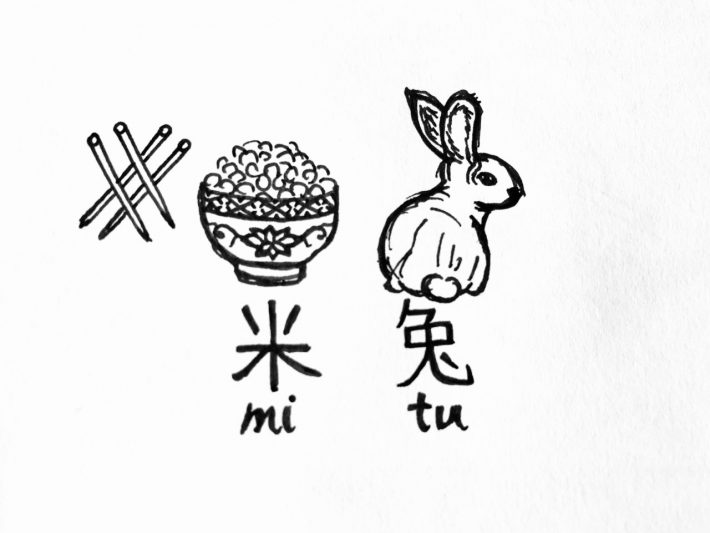BY LIJIA ZHANG
Shutting down feminist groups on social media over “extremism” has backfired and led to greater visibility for radical feminism. If the government is worried about China’s population, it should address discrimination and other issues that hold back women.
This essay was originally published at the South China Morning Post.
Is the idea of simply not wanting to have any relationship with men extremism? In most parts of the world, the answer should be “no”, but apparently not in China.
In April, Douban, a Chinese social media platform favoured by liberal internet users, shut down several feminist groups that were associated with a brand of feminism known as “6B4T”. Originating in South Korea around 2019, adherents wish to exclude men from their lives and reject the institution of marriage, which they regard as the root of patriarchy.
The “6B” stands for not having romantic or sexual relationships with men; not getting married or having children; not buying misogynistic products; and offering help to other single women. “4T” refers to their rejection of tight-fitting outfits, religions and idols.
Douban claimed the online forums associated with these groups were erased because they “contained extremism and radical political and ideological thoughts”. In a country where women are arrested for protesting against sexual harassment in public transport, such censorship is not a surprise.
Moreover, at a time when China’s population is shrinking, I can imagine the authorities don’t feel overjoyed by some women’s determination not to marry or to procreate. Are these women really radical, though? From what I understand, some of the 6B4T followers are lesbians, but not all of them. Some are disappointed or traumatised by their intimate relationships with men. They are mostly young, urban and educated.
As in the case of South Korea, adopting the 6B4T philosophy is a protest against the patriarchal culture that still dominates today’s society. Fundamentally, it is a matter of lifestyle choice. After all, choosing whether to have sex or children is within one’s rights.
The space for feminist activism has shrunk under President Xi Jinping. However, women have found creative ways to criticise their unfair treatment, even using songs and stand-up comedy.
At the same time, the attack on feminists has become increasingly vicious. Yang Li, the “punchline queen” who has offended some men with her biting humour, has received a barrage of online attacks and become a public hate figure.
In April, when a woman and her friend demanded a man stop smoking in a hotpot restaurant, he splashed some hotpot broth on them along with a torrent of insults. The woman recorded the episode on her phone and later posted it online. While many female internet users praised her courage in speaking out, many men bombarded her with insults and exposed the personal details of her life.
This woman is the well-known feminist Xiao Meili. In 2013, she marched from Beijing to Guangzhou to increase awareness of child sex abuse. I had the pleasure to walk with her for a week.
Knowing her as confident and determined, I am sure Xiao will not be deterred by online trolling. In this hostile environment, it’s not surprising that many other women have chosen a new way to fight for the feminist cause and adopted “6B4T”.
Ironically, Douban’s banning of the groups had a Streisand Effect, which pushed 6B4T to trend on Weibo. Questions such as “is the idea of simply not wanting to have any relationship with men extremism?” were asked. Many women who don’t adhere to 6B4T expressed their support.
Among them was Xianzi, aka Zhou Xiaoxuan, who has become the face of China’s #MeToo movement after she sued famous TV host Zhu Jun for sexual harassment. “By censoring the groups,” she wrote in a Weibo post, “Douban is censoring feminist content.”
Naturally, not all comments were in favour of 6B4T followers. Some questioned if such a philosophy would make society more divisive while others hurled abuse. Some adherents didn’t understand what the fuss was about.
The wisest thing for the government to do is learn to respect feminists and give them platforms to express themselves. If the authorities are worried about the shrinking population, then create policies that reduce discrimination in the workplace and allow single women to access assisted reproduction technology.
I don’t think this repression will achieve much since smart, young feminists will find a way to continue their fight.

About the author
Lijia Zhang is a factory-worker-turned writer, social commentator and public speaker. One of the few Chinese who write regularly in English for international publications, her articles have appeared in The Guardian, The South China Morning Post, Newsweek and The New York Times. She is the author of the critically acclaimed memoir “Socialism Is Great!” about her decade-long experience of working at a rocket factory in Nanjing and her debut novel Lotus, on prostitution in contemporary China, was published by Macmillan and was featured by BBC radio’s World Book Club. She is a recipient of the prestigious fellowship on the International Writer’s Program at the University of Iowa. Lijia has lectured at many conferences, institutions and universities around the world, including Asia EU Economic Forum, European Institute for Asian Studies, The University of Sydney, Harvard, Columbia, Stanford and Oxford. She is a regular speaker on the BBC, Channel 4, CNN and NPR. She divides her time between London and Beijing.
About the artist
Jessie Lau is a writer, editor and artist covering identity, human rights and politics—with a focus on China and the Asia Pacific. Her work has been published by The Guardian, Foreign Policy, Channel 4 News, and The Economist, among others. She serves as Board Member and Online Editor-in-Chief at NüVoices, and was formerly a reporter with the South China Morning Post. Based in London and Hong Kong, she holds a MSc in International History from the London School of Economics, an LLM in International Studies from Peking University, and a BA in English from the University of California, Berkeley. Website: www.laujessie.com. Twitter: @_laujessie

